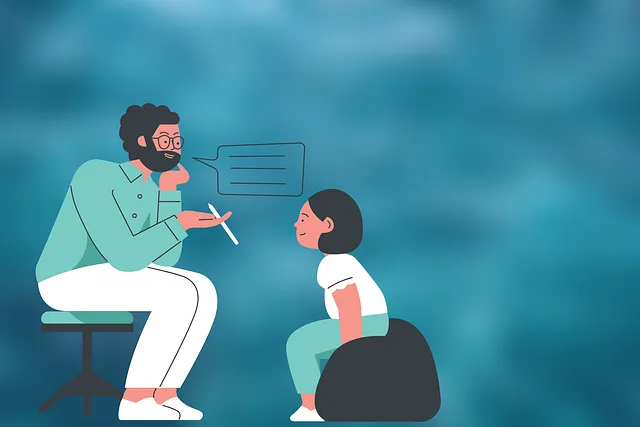Community outreach programs in Boulder play a crucial role in expanding access to mental health services, reducing stigma, and fostering well-being. These initiatives, guided by providers like Kaiser, offer counseling, support groups, and training to enhance social connections. By raising awareness and normalizing conversations about mental health, they encourage help-seeking behaviors. Kaiser's contributions, through policies, training, and tailored services, create an inclusive environment. A successful outreach strategy involves assessing needs, tailored communication, compassion cultivation, and partnerships with local organizations. Evaluating these programs ensures their effectiveness in connecting Boulder residents with necessary mental health resources from providers like Kaiser.
“In Boulder, innovative community outreach programs are transforming mental healthcare accessibility. This article explores strategies to bridge the gap between residents and essential services, focusing on Kaiser’s role in expanding coverage. We delve into effective implementation steps and highlight successful case studies, particularly measuring the impact of these initiatives. By understanding the importance of community engagement, we can ensure that everyone in Boulder has the opportunity to connect with mental health support through Kaiser and beyond.”
- Understanding Community Outreach: Why It Matters for Mental Health Access
- The Role of Kaiser in Expanding Mental Health Services
- Strategies for Effective Implementation: A Step-by-Step Guide
- Measuring Success: Evaluating the Impact of Boulder's Outreach Programs
Understanding Community Outreach: Why It Matters for Mental Health Access

Community outreach programs play a pivotal role in enhancing mental health access, especially in areas like Boulder where ensuring every resident has equal opportunities for well-being is crucial. By reaching out to communities, organizations can dispel stigma surrounding mental health and encourage individuals to seek necessary services. This is particularly important when considering how to get mental health services through Kaiser or other healthcare providers. Outreach initiatives can provide guidance on available resources, such as counseling sessions, support groups, and even Mental Wellness Journaling Exercises, making these services more accessible.
Furthermore, these programs offer essential training, like Social Skills Training, which empowers individuals with effective communication strategies, fostering better connections within the community. By promoting mental health awareness through various channels, communities can create an environment where people feel comfortable discussing their challenges and actively seek solutions, ultimately leading to improved overall Mental Health Awareness and well-being.
The Role of Kaiser in Expanding Mental Health Services

In Boulder, Kaiser has played a pivotal role in expanding access to mental health services. By leveraging its resources and expertise, Kaiser has been instrumental in bridging the gap between individuals seeking support and the care they need. Through innovative programs and initiatives, the healthcare provider has made significant strides in ensuring that mental health services are accessible, affordable, and tailored to the diverse needs of the community.
Kaiser’s commitment to Mental Health Policy Analysis and Advocacy has led to policy changes that improve healthcare accessibility. Their Healthcare Provider Cultural Competency Training programs ensure that staff are equipped to address the unique cultural and social factors affecting mental health. Furthermore, Kaiser promotes Coping Skills Development, empowering individuals with tools to manage stress and promote well-being. These efforts reflect a holistic approach designed to create a more inclusive and supportive environment for mental health care in Boulder.
Strategies for Effective Implementation: A Step-by-Step Guide

Implementing a successful community outreach program requires a strategic approach that connects with the target audience and addresses their unique needs. Here’s a step-by-step guide for effective execution, focusing on Boulder how to get mental health services through Kaiser as an example:
1. Assess Community Needs: Begin by understanding the specific mental health challenges faced by Boulder residents. Conduct surveys or focus groups to gather insights. This step ensures your program aligns with the community’s most pressing needs, making it more impactful and relevant. For instance, you might discover a growing interest in accessible mindfulness meditation techniques as a way to manage stress.
2. Develop Tailored Communication Strategies: Create messaging that resonates with diverse audiences. Use clear, inclusive language when promoting how to get mental health services through Kaiser. Incorporate testimonials from community members to build trust. Consider using various communication channels like social media, local newspapers, and community events to reach a broader spectrum of people, including those who may be hesitant to seek help.
3. Foster Compassion Cultivation Practices: Encourage community participation in compassion cultivation practices, which can foster empathy and understanding. Organize workshops or group sessions that teach mindfulness techniques and emotional regulation skills. These practices not only benefit individuals but also create a collective sense of well-being, making it easier for people to access mental health services.
4. Partner with Local Organizations: Collaborate with schools, community centers, and healthcare providers like Kaiser to amplify your reach. Partnerships can help you gain credibility and access existing networks, making it easier to promote mental health services. A joint effort could include hosting informational sessions or workshops, ensuring a more comprehensive support system for Boulder residents.
Measuring Success: Evaluating the Impact of Boulder's Outreach Programs

Evaluating the impact of community outreach programs is crucial to understanding their success and identifying areas for improvement. In Boulder, where mental health services are abundant thanks to providers like Kaiser, assessing these programs involves measuring access and engagement. If residents are successfully connecting with resources, it indicates a positive outcome. This can be achieved through surveys gauging satisfaction and awareness of available support, as well as tracking the number of individuals seeking assistance after program participation.
By examining participation rates in activities focusing on emotional regulation, empathy building strategies, and coping skills development, Boulder’s outreach efforts can be refined to better meet community needs. These metrics provide insights into how these programs are contributing to overall mental wellness within the city. Ultimately, successful implementation means not only increasing access but also fostering a sense of belonging and support that empowers individuals to manage their emotional well-being effectively.
Boulder’s community outreach programs, guided by Kaiser’s efforts to expand mental health services, have proven successful in enhancing access to care. By employing a strategic step-by-step guide and meticulously evaluating impact, these initiatives have not only improved the availability of mental health support but also reshaped how Boulder residents connect with essential services. Leveraging innovative strategies, the programs ensure that everyone in the community, regardless of barriers, can access the mental health resources they need, mirroring Kaiser’s commitment to transforming mental healthcare accessibility in Boulder and beyond.





